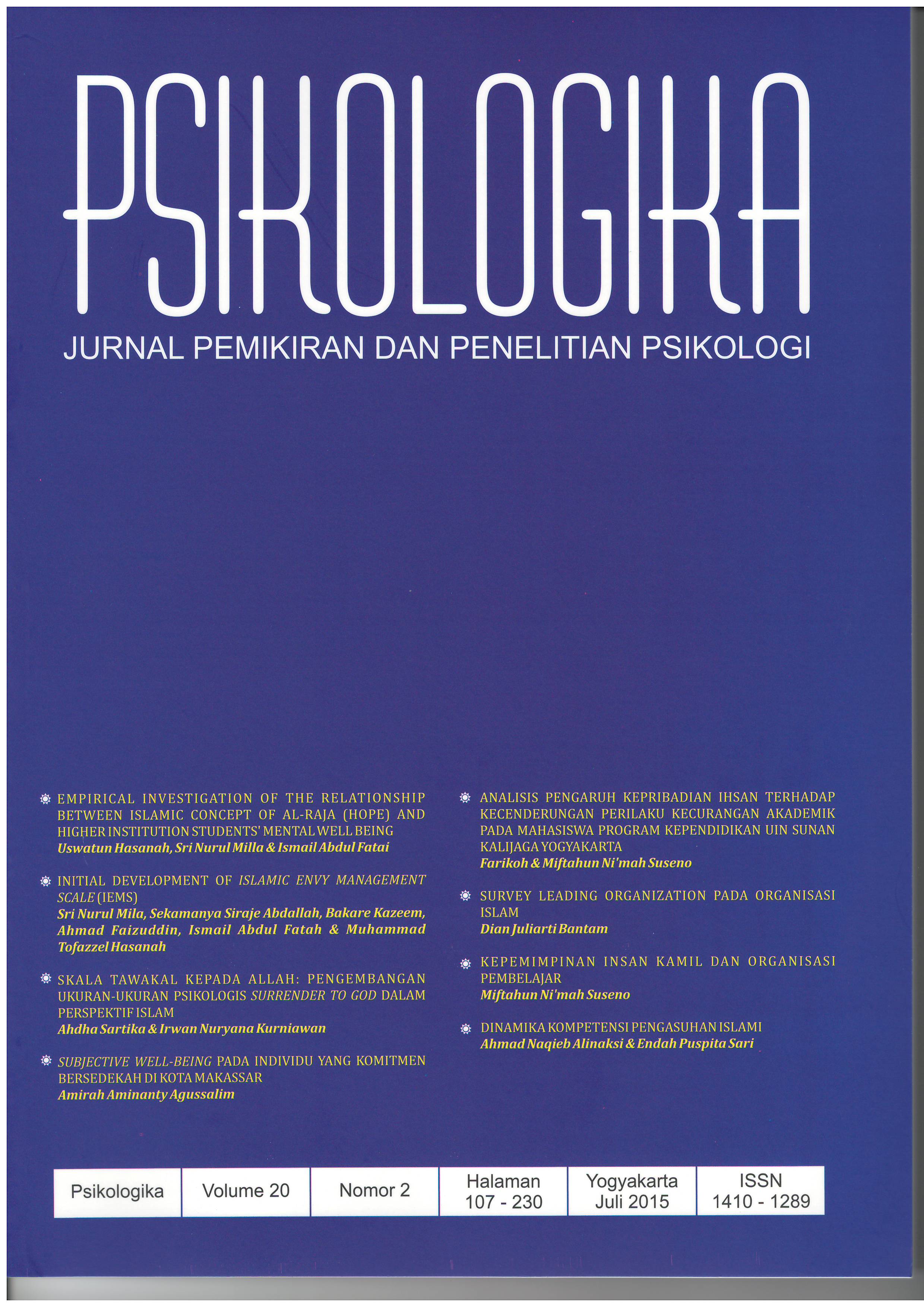Main Article Content
Abstract
This study aims to determine the differences level of subjective well-being (SWB) in individuals who committed charity in the city of Makassar. Subjects in this study were members of the Community Charity Month Early in Makassar, a total of 30 subjects. This study used quantitative research methods. The research instrument consisted of a questionnaire Alms commitment to see the commitment of individuals in charity and scale of Positive Affect Negative Affect Schedule ■ Expanded Form to measure positive and negative affect on indivdu and Satisfaction with Life Scale used to measure the level of individual life satisfaction. Subjects in the study were measured three times to determine differences in the level of SWBBased on the analysis of research data, to the cognitive and affective aspects of the show that there was no significant difference in the level of SWB is based on three types of charity commitments are measured before the charity, a week after charity, and two weeks after the charity, individuals who committed to charity have a relatively constant level of SWB.
Keywords: Subjective Weil-Being, Charity, Charity Commitment
Article Details
Authors who publish with this journal agree to the following terms:
- Authors retain copyright and grant the journal right of first publication with the work simultaneously licensed under a Creative Commons Attribution-ShareAlike 4.0 International License that allows others to share the work with an acknowledgment of the work's authorship and initial publication in this journal.
- Authors are able to enter into separate, additional contractual arrangements for the non-exclusive distribution of the journal's published version of the work (e.g., post it to an institutional repository or publish it in a book), with an acknowledgment of its initial publication in this journal.
- Authors are permitted and encouraged to post their work online (e.g., in institutional repositories or on their website) prior to and during the submission process, as it can lead to productive exchanges, as well as earlier and greater citation of published work (See The Effect of Open Access).




